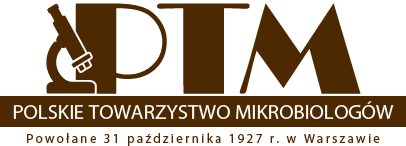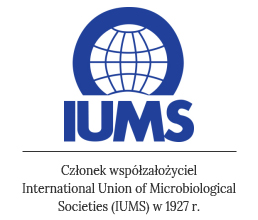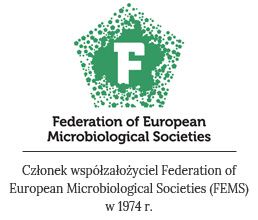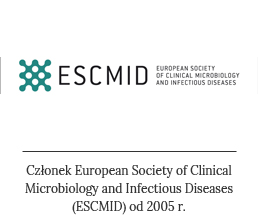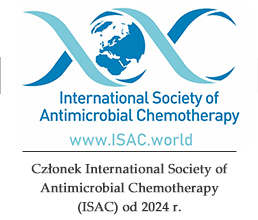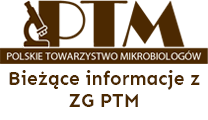FEMS AFFILIATES LETTER SEPTEMBER
11 października 2022
| Important Dates: 3 October 2022: Abstract & Grants Submission open 1 January 2023: Registration Opens 1 February 2023: Abstract & Grants Submission deadline |
| Connecting People, Sharing Knowledge |
| FEMS Affiliates Letter – September 2022 |
| Dear FEMS Affiliates, Next month we will be splitting the FEMS Affiliates Letter into two parts, sent separately at different times in the month. A FEMS Research Bulletin, containing all the latest research from the FEMS Journals, and a FEMS Affiliates News, containing all the latest news from the microbiology community! We hope that with two shorter newsletters, we will keep you better informed of all the amazing things the microbiology community are doing. Warmest regards, Joseph Brooks Shuttleworth, Science Communications Project Manager |
| 1. Microbiology News and Events |
| Celebrating IMD2022! International Microorganism Day this year was a fantastic success! Event Organizers across the globe put together over 40 events for audiences ranging from young schoolchildren to students, to the general public, to microbe enthusiasts and more. You can find details of all the events hosted on the IMD Events 2022 page. During September, over 1.7 million individuals saw the #InternationalMicroorganismDay hashtag, with it appearing nearly 4 million times online! Over a thousand people used the hashtag and made thousands of social media posts. This year so far, over 23,000 unique people have visited the IMD website, and viewed webpages over 45,000 times. Thank you so much to our community for supporting IMD2022! We also announced the winners of the Microbe Art Contest. People from all around the world were able to enter the Microbe Art Competition by posting their artistic entries on Twitter, Facebook, and Instagram and using the hashtags #MicrobeArt2022 and #InternationalMicroorganismDay. You can find these amazing creations here. The winners are: Grand Prize: Sergio Martínez Best Agar Art: Bacterial Art Best Cartoon: Luca Tonietti Best Illustration or Painting: Aparrajitha Viswanathan Best Photography: Wolfgang Hinterdobler Best Physical Piece: Life Sciences ITE CE Congratulations to all our winners and a special shout out to Grand Prize Winner: Sergio Martínez! With several new blog entries published, don’t forget to keep visiting out IMD Blog across the year to keep yourself entertained and informed until IMD2023. Find out more |
| FEMS Microbiology Ecology Webinar On Microbial Ecology In A Changing Climate You can now watch the recording of our recent webinar on Microbial Ecology in a Changing Climate! The interplay of microbial communities and the changing climate is a complex issue. This webinar explores the results from 3 recent papers that discover the effects of climate change on microbial ecosystems. Read the accompanying Special Issue: Microbes in a changing climate Originally broadcast on Thursday 22 September 2022, this webinar features: Chair: Max Häggblom, Editor-in-Chief of FEMS Microbiology Ecology Speaker 1: Ari Jumpponen – Division of Biology, Kansas State University, Manhattan, KS, USA – Soil microbiome responses to changing fire regimes and fire severities – author of: Watershed and fire severity are stronger determinants of soil chemistry and microbiomes than within-watershed woody encroachment in a tallgrass prairie system Speaker 2: Laura Zucconi – Department of Ecological and Biological Sciences, University of Tuscia, Largo dell’Università, Viterbo, Italy – Responses of high altitude soil microbiomes to climate change – author of: Composition and functioning of the soil microbiome in the highest altitudes of the Italian Alps and potential effects of climate change Speaker 3: Elliot Scanes – Climate Change Cluster, University of Technology Sydney, Ultimo, New South Wales, Australia – Microbiome responses of Sydney rock oysters to ocean warming and acidification – author of: Microbiome response differs among selected lines of Sydney rock oysters to ocean warming and acidification Watch Now |
| Social Media Volunteers Wanted! We are looking for two new volunteer Journal Social Media Editors (JSMEs). Their role will be to read the latest microbiological research published in our journals FEMS Microbiology Letters and Pathogens and Disease, and produce well-made social media posts about these papers for our audience on Twitter, Facebook, and LinkedIn. This role is to be performed remotely: online and by email. You will get the chance to develop social media and science communications skills. No experience is necessary (although is desirable), there is plenty of time to learn and develop while volunteering with us. You will work closely with the Science Communications Project Manager, the other JSMEs, and staff at the FEMS Office who will provide advice and training and a continued presence throughout your commitment. The commitment expected involves regular posts (1 -2 per week) for an initial duration of 12 months. We also coordinate ad-hoc communications campaigns organized around specific events across the year. (e.g. International Women’s Day, Antibiotic Awareness Week, Peer Review Week etc.). If you wish to apply, then please email a current CV and a short paragraph explaining your reasons wanting the role to: joseph.shuttleworth@fems-microbiology.org Please also do make contact if you have any questions about the role you want answered first. T his is not a paid position, and will not lead directly to any paid work with FEMS. Applications Deadline: 17 October 2022 More info on the roles FEMS Council 2022 in Trogir (Croatia) The FEMS Council met on 9-10th September in Trogir (Croatia) with wonderful hosting performed by the Croatian Microbiological Society. It was the first hybrid Council meeting in the history of FEMS, with 40 delegates attending. The Council sessions were chaired by the FEMS President, Hilary Lappin-Scott. We are pleased to announce the election of two new talented Directors to the FEMS Board. We welcome to our team Christopher Thomas as Finance Director and Jana Jass as our new Grants Director, from 1 January 2023. Christopher Thomas has a long career in microbiology and society finance, as former Treasurer of the Microbiology Society (UK and Ireland). Jana Jass has worked with FEMS closely as an Editor-in-Chief of FEMS Microbes and as Sector Editor of Physiology, Biochemistry and Genetics in FEMS Microbiology Letters. She also has extensive experience in Swedish research councils as a formal reviewer of proposals. The FEMS Council has every faith in these new appointments and we cannot wait to begin working with our new Directors. Of course, we cannot elect new Directors without waving goodbye to our previous Board members. We are so grateful to Colin Harwood (Treasurer until 31 December 2022) and Jozef Anné (Grants Director until 31 December 2022) for all their service, commitment, and hard work. We send our heartfelt thanks and wish them the very best with their commitments and life after FEMS. More info |
| Three of our grants are increasing their support! To further support our growing microbiology community, we are increasing the amount offered for three of our grants! We appreciate that costs are increasing in many areas so we hope that this will better reflect the current needs of our community. And just as a reminder that all of our grants have two application rounds each year, except the Ukraine Support Grant that accepts applications on a rolling basis year-round. Research and Training Grants: from 4000 to 5000 EUR Meeting Attendance Grants: from 600 to 750 EUR Ukraine Support Grant: from 6000 to 7500 EUR FEMS Grants FEMS Summer School for Postdocs 2022: Round-up The latest FEMS Summer School for Postdocs took place on 3-13 September 2022, at the Mediterranean Institute for Life Sciences (MedILS), in Split, Croatia The Summer School presents a unique opportunity for early career scientists to receive instruction and supervision from prominent academics, collaborate and network with fellow researchers from an international range of countries, and to discuss their own work as well as wider aspects of being a scientist. 19 talented postdocs attended from across the world 10 distinguished speakers-mentors also 10 days full with lectures, workshops, and discussions We would like to take this opportunity to thank the Summer School Director, Vaso Taleski, Co-Directors, Hilary Lappin-Scott and Max Häggblom, as well as the Honorary Director, Miroslav Radman More info News from: Société Française de Microbiologie The French Society for Microbiology (Société Française de Microbiologie) has supported the development of a new game (developed by a member of its Board) that helps people learn more about clinical microbiology. „Bacteriagame” is a fun card game that has been developed created at the University Sorbonne Paris Nord, thanks to a collaboration between a medical bacteriologist (Mathilde Lescat) and the Ludomaker (Nicolas Pineros). The English language version of the game has now launched and is available to purchase. It makes a great gift for anybody interested in clinical microbiology! Find out more |
| Explore the Scientific Careers of microLife Editors The grand expertise of the Editorial Board of microLife is one of the greatest features of the journal. Discover their inspiring careers and backgrounds with these biographic articles exploring their path through science: Living a bacterial lifestyle as an academic researcher – the scientific life of Melanie Blokesch, Assistant Professor at the Global Health Institute at the Swiss Federal Institute of Technology in Lausanne (EPFL) (Switzerland) A microbiologist can’t let their sourdough die – the scientific life of Prof. Judith Behnsen University of Illinois Chicago (USA), Section Editor for Gut microbiome; Fungal microbiome; Gnotobiotics; Salmonella pathogenesis; Nutritional immunity; Bacterial competition systems Microbes live in a society, just like us – the scientific life of Prof. Philippe Sansonetti, Pasteur Institute (France), Editor for Molecular Microbial Pathogenesis microLife is our fully gold open access journal, reporting research of the highest standard, novelty and significance in microbiology and related disciplines. As the journal of the European Academy of Microbiology (EAM), microLife is run by leading microbiologists in their own fields. All microbes are covered, including bacteria, archaea, fungi, protists, parasites, and viruses. Find @microLifeJrnl on Twitter Read the latest microLife issue |
| Thank You to our FEMS Reviewers in 2022 In honour of Peer Review week 2022, we would like to sincerely thank all reviewers for the seven FEMS Journals. Reviewers are the unsung heroes of every reputable scholarly journal. With their subject expertise and voluntary work, they provide an invaluable contribution for the advancement of science. Soon, reviewers for FEMS journals will be able to download a certificate for their work done to help advance microbiology. See all reviewers Winner of the FEMSmicroBlog Writing Competition A rogue researcher far out at sea has second thoughts about her mission at the last minute. The mission – upregulation of microbially-produced sulfur aerosols – can help counter the greenhouse effect. But is the science there yet? And what could be the unintended consequences? Read the flash fiction story “Mutiny” by Gavin Douglas, winner of the #FEMSmicroBlog Writing Competition on “How Microbiology will Change our Future”. You can also read all shortlisted stories on the #FEMSmicroBlog. Read the short story: Mutiny Expanding the international FEMS Ambassador program We are pleased to announce an expansion of the FEMS Ambassador program, which was launched in 2019 to advance microbiology and support microbiologists outside Europe. An enthusiastic group of new Deputy Ambassadors based in seven non-European countries has been appointed this summer. They will work together with the current group of FEMS Ambassadors to encourage international collaborations and participation in FEMS activities. FEMS Ambassadors |
| 2. FEMS Research |
| Publishing Open Access without charges in FEMS journals Many authors are eligible to publish Open-Access for free in the FEMS journals. Oxford University Press, the publishing partner of FEMS, has made Read and Publish agreements with hundreds of institutions around the world to arrange funding for open access publishing. This means authors from participating institutions from all over the world can publish their papers Open Access whereby their institution pays the charge. These agreements always include the five FEMS “hybrid” journals (FEMS Microbiology Ecology, FEMS Microbiology Letters, FEMS Microbiology Reviews, FEMS Yeast Research and Pathogens and Disease). Furthermore, our two full Open Access journals microLife and FEMS Microbes are often covered too. You can find out if your institution and FEMS journal of choice are participating here More information |
| microLife The journal of the FEMS European Academy of Microbiology Follow on Twitter: @microLifeJrnl As the journal of the European Academy of Microbiology (EAM), microLife is the platform for leading experts in microbiology, publishing outstanding papers of the highest standard, novelty, and significance. Submissions welcome: Editors-in-Chief: Axel Brakhage & Carmen Buchrieser FEMS Microbes Open science towards a sustainable world FEMS Microbes is our community journal for sharing research findings, in particular for Early Career Scientists to read, publish, and contribute. Submit your research now: Editors-in-Chief: Jana Jass, Kimberly Kline, and Kathleen Scott |
| Bacterial methyltransferases: from targeting bacterial genomes to host epigenetics Methyltransferase (MTases) enzymes transfer methyl groups particularly on proteins and nucleotides, thereby participating in controlling the epigenetic information in both prokaryotes and eukaryotes. The concept of epigenetic regulation by DNA methylation has been extensively described for eukaryotes.In this review, the authors will focus on lysine and arginine MTases of bacteria and their hosts. The identification and characterization of these enzymes will help to fight bacterial pathogens as they may emerge as promising targets for the development of novel epigenetic inhibitors in both bacteria and the host cells they infect. Monica Rolando, Cristina Di Silvestre, Laura Gomez-Valero, Carmen Buchrieser Read Increased virus dissemination leads to enhanced lung injury but not inflammation during influenza-associated secondary bacterial infection Secondary bacterial infections increase influenza-related morbidity and mortality, particularly if acquired after 5–7 d from the viral onset. Synergistic host responses and direct pathogen–pathogen interactions are thought to lead to a state of hyperinflammation, but the kinetics of the lung pathology have not yet been detailed, and identifying the contribution of different mechanisms to disease is difficult because these may change over time. To address this gap, the authors examined host–pathogen and lung pathology dynamics following a secondary bacterial infection initiated at different time points after influenza within a murine model. Amanda P Smith, Lindey C Lane, Ivan Ramirez Zuniga, David M Moquin, Peter Vogel, Amber M Smith Read |
| FEMS Microbiology Ecology Your natural research habitat FEMS Microbiology Letters Promoting new ideas FEMS Microbiology Reviews Outstanding reviews from leading experts |
| Variation in gut microbiome structure across the annual hibernation cycle in a wild primate Wild dwarf lemurs in Madagascar show seasonal reconfigurations of the gut microbiome across the annual hibernation cycle, with microbial diversity tracking the host’s reliance on dietary fruit sugars. Lydia K Greene, Jean-Basile Andriambeloson, Hoby A Rasoanaivo, Anne D Yoder, Marina B Blanco Read Developing student codesigned immersive virtual reality simulations for teaching of challenging concepts in molecular and cellular biology Student partnered design and cocreation of virtual reality simulations for teaching and learning in the molecular and cellular biology curriculum. F Jerry Reen, Owen Jump, Grace McEvoy, Brian P McSharry, John Morgan, David Murphy, Niall O’Leary, Billy O’Mahony, Martina Scallan, Christine Walsh, Briony Supple Read Barriers to genetic manipulation of Enterococci: Current Approaches and Future Directions Enterococcus faecalis and Enterococcus faecium are Gram-positive commensal gut bacteria that can also cause fatal infections. This review examines E. faecalis and E. faecium DNA defence systems and the methods. Alexandra L Krause, Timothy P Stinear, Ian R Monk Read |
| Pathogens and Disease Next generation host pathogen research FEMS Yeast Research The yeast community journal Out Now: Virtual Issue, first in our ‘Landmarks in Microbiology’ series |
| Vitamin D-induced LL-37 modulates innate immune responses of human primary macrophages during DENV-2 infection LL-37 is a potent antimicrobial peptide with a wide range of immunoregulatory properties. In this study, we assessed the effect of LL-37 on DENV-2-induced responses in human monocyte-derived macrophages (MDMs). Jorge Andrés Castillo, Diana Marcela Giraldo, Jolanda M Smit, Izabela A Rodenhuis-Zybert, Silvio Urcuqui-Inchima Read Biosynthesis of insect sex pheromone precursors via engineered β-oxidation in yeast Several Lepidoptera sex pheromones have been produced in yeast, where biosynthesis could be accomplished by the expression of fatty acyl-CoA desaturases and fatty acyl-CoA reductases. In this study, the authors aimed to develop yeast Yarrowia lipolytica cell factories for producing Lepidoptera pheromones which biosynthesis Karolis Petkevicius, Leonie Wenning, Kanchana R Kildegaard, Christina Sinkwitz, Rune Smedegaard, Carina Holkenbrink, Irina Borodina Read Climate change is having a major impact around the world and there is thus considerable interest in understanding the roles and responses of microbes in these rapidly changing environments. This virtual special issue highlights recent articles in FEMS Microbiology Ecology that explore microbes in a changing climate. These articles take us to different biomes across the world, with studies charactering microbial responses, metabolic adaptations of microbial communities and their impacts on biogeochemical cycles, and the effect on symbioses and the interactions of complex microbial assemblages. Read |
| 3. Policy Corner |
| Welcome to our new Policy corner were you can find our the latest from our connections and initiatives in the world of Science Policy. |
| Flora Fauna Funga Fungi are a crucial part of the ecosystem and essential for countless applications and processes, yet research on them lags behind, and conservation efforts are less compared to other organisms. The Flora Fauna Funga initiative aims at changing this. This starts with a name – adding “funga” when referring to the conservation of plants (flora) and animals (fauna). You can read their statement and sign it below. “We are unthinkable without fungi, yet seldom do we think about them. It is an ignorance we can’t afford to sustain.” Read the statement |
| Science|Business Bulletin No. 1060 – 27 Sep 2022 Bringing together industry, research and policy. The quickening pace of scientific and technological discovery is re-shaping policies, markets and economies around the world. Arm yourself with a regular new Science|Business briefing. Read more |
| 4. Grants Corner |
| Members of FEMS Member Societies can apply for grants for research and training, or for support when organizing a scientific meeting, or attending a scientific meeting – including our Member Societies’ national and regional congresses. Some grants are reserved for Early Career Scientists. Every year we use the income from the FEMS journals to support hundreds of grantees and enable experts to share ideas and promote excellence in science. This time of year there are several grants awaiting applications! Make sure you don’t miss the deadlines for: |
| Meeting Organizer Grants (Deadline: 1 December 2022) Members of FEMS Member Societies can apply for all our grants. FEMS supports selected meetings within the European Area with a Meeting Organizer Grant. Scientific conferences, laboratory workshops and training courses will be considered for such support. The maximum amount of a Meeting Organizer Grant is € 15,000. Apply Now Research and Training Grants (Deadline: 1 January 2023) Members of FEMS Member Societies can apply for all our grants. Research and Training Grants are meant to assist early career scientists in pursuing research and training at a European host institution in another country than their own country of residence. Support is limited to a maximum of €5,000. Apply Now |
| Meet FEMS Research and Training grantee Nina Čuljak Research and Training Grants are meant to assist early career scientists in pursuing research and training at a European host institution in another country than their own country of residence. Deadline for application: 1 January for projects that will start within a year from the following 1 March. |
| Nina Čuljak: University of Zagreb, Faculty of Food Technology and Biotechnology, Department of Biochemical Engineering, Zagreb, Croatia. Host supervisor and host laboratory: Prof. Paola Cescutti, PhD, Department of Life Sciences, University of Trieste, Trieste, Italy. Dates: 14 January 2022 to 13 April 2022 FEMS Member Society Membership: Croatian Microbiological Society ”In 2020, I was employed as an assistant on the project of the Croatian Science Foundation “Career Development Project for Young Researchers – Training of New Doctors of Science”, within which I enrolled in doctoral study Biotechnology and Bioprocess Engineering, Food Technology and Nutrition. I am currently working on a project “Potential therapeutic biomolecules of the next-generation probiotics” in the Laboratory for Antibiotic, Enzyme, Probiotic and Starter Cultures Technology at the Department of Biochemical Engineering. The aim of this project is to characterise lactic acid bacteria (LAB) strains, isolated from breast milk, which produce potential therapeutic biomolecules (such as S-proteins, exopolysaccharides and bacteriocins), and to examine the possibility of their application as potential „live biotherapeutic products”. I was awarded a FEMS Research & Training grant which gave me the opportunity to spend 3 months at the Department of Life Sciences at the University of Trieste (Italy), where I worked on determining the structure of exopolysaccharide isolated from LAB strain using NMR techniques. As a student, I was a member of the Student Association of the Faculty of Food Technology and Biotechnology – PROBION, and now I am a member of the Croatian Microbiological Society and the Croatian Society for Biotechnology. The FEMS Research and Training Grant provided me with opportunity to spend 3 months at the Department of Life Sciences at the University of Trieste (Italy), in Prof. Paola Cescutti’s group. There I determined the structure of exopolysaccharides (EPS) using NMR spectroscopy. We managed to determine the main polysaccharide, but the determination of structure of the other polysaccharide is still ongoing. Besides determining the structure, I tried to optimize EPS production, since the yield was low. Also, in Trieste I met other researchers with similar interests, from whom I learnt a lot. Some of my colleagues also received the same Grant and they had only positive things to say about their stay abroad. I wanted to expand my knowledge and to meet new people. Also, I wanted to experience life abroad. I wanted to do expand my knowledge on NMR techniques, and I managed to do that with hard work and with help of my mentors in Trieste. Also, I wanted to meet new people. The grant gave me the opportunity to work in Italy for 3 months, with Prof. Paola Cescutti, where I did a part of my doctoral thesis related to determining the structure of exopolysaccharides. Also, it gave me the opportunity to network with new people with similar interests and allowed me to grow as a young scientist. I knew about FEMS before applying for the grant. Some of my older colleagues were also awarded the same Grant. FEMS already does a great job at contributing to young scientist’s career and scientific development. FEMS also encourages scientists to attend microbiology meetings to present their experimental results and to network.’’ FEMS Grants |
| 5. Opportunities |
| Annual Conference 2023 of the Association for General and Applied Microbiology We invite you the FEMS Sponsored Event – Annual Conference 2023 of the Association for general and applied microbiology (VAAM). This is going to take place on 10-13 September 2023. After two years of the pandemics and several lock-downs, we all thirst for personal meetings and direct discussion of science! Don’t miss the opportunity to meet your colleagues in person again as well as an exciting scientific programme with the following main topics: Regulation and Signal Transduction Biotechnology Computational Microbiology Fungal Interactions More info |
| Job of the Month Postdoc in Environmental Microbiology: Ireland Final application date: 28 October 2022 Institute: University College Dublin, Ireland Applications are invited for a temporary post of a Post-doctoral Research Fellow Level 1within School of Biology and Environmental Science / Earth Institute. This project will focus on grazed permanent grassland systems searching for solutions to tackle global grassland degradation. Most grassland plant species form mycorrhizal associations, and a range of management strategies are available to modify the extent and function of fungal networks. The project is a consortium that has established an international collaborative network between Germany, England, Italy and Ireland. Find out more |
| Opportunity Board Hot Links Click on the linked tiles below to take you to these sections: |
| 6. Extras |
| Follow us on Instagram for microscopy videos! Did you know that every week we upload a short microscopy video? Eleni Koursari, our Science Communications Officer, collects fresh samples from the environment and shares with you her findings, from diatoms to rotifers and nematodes! Head to our Instagram account and discover the amazing microscopic world with us! Watch our microscopy reels FEMSmicroBlog – A fungal pathogen escaping macrophages Cryptococcus neoformans is a pathogenic fungus which is facultative intracellular and can cause life-threatening diseases in humans with weakened immune systems. While in healthy individuals macrophages eat and control the growth of pathogens, the fungus developed an unusual strategy to avoid immune killing. The study “Cryptococcus neoformans releases proteins during intracellular residence that affect the outcome of the fungal-macrophage interaction” in microLife characterized different proteins that might be involved in this escape mechanism. Carolina Coelho explains more in this #FEMSmicroBlog. Read the blog Call for Papers in FEMS Journals: June 2022 Below is a current list of Call for Papers in FEMS Journals. Find more information and contact details of editors by clicking on the link. All journals in the FEMS Portfolio welcome spontaneous submissions except for FEMS Microbiology Reviews (invited contributions, pre-submission enquiries possible). Help us spread the word! Emerging role of chromatin remodeling in the persistence and elimination of microbial pathogens, microLife Extracellular Vesicles, microLife Advances in the Study of Obligate Intracellular Bacterial Pathogens, Pathogens and Disease Bacterial-Viral Coinfections, FEMS Microbes Biofilms, FEMS Microbiology Reviews (submission deadline: 15 April 2023) FEMS Journals |
| That’s all from us at FEMS for the moment! We will write again in a month with all the latest news, events, research, grants info, opportunities, and more… |

